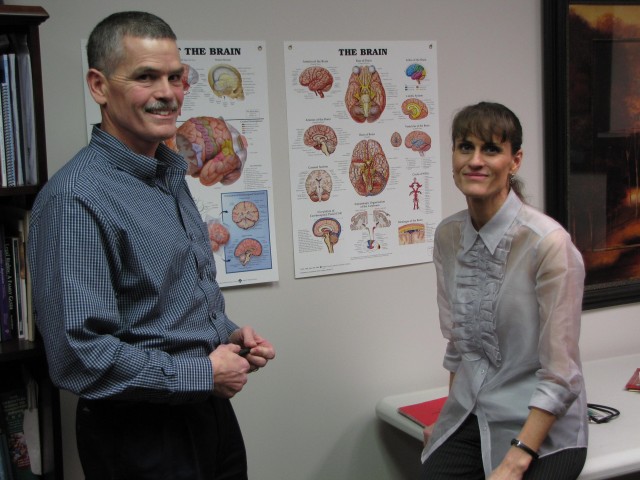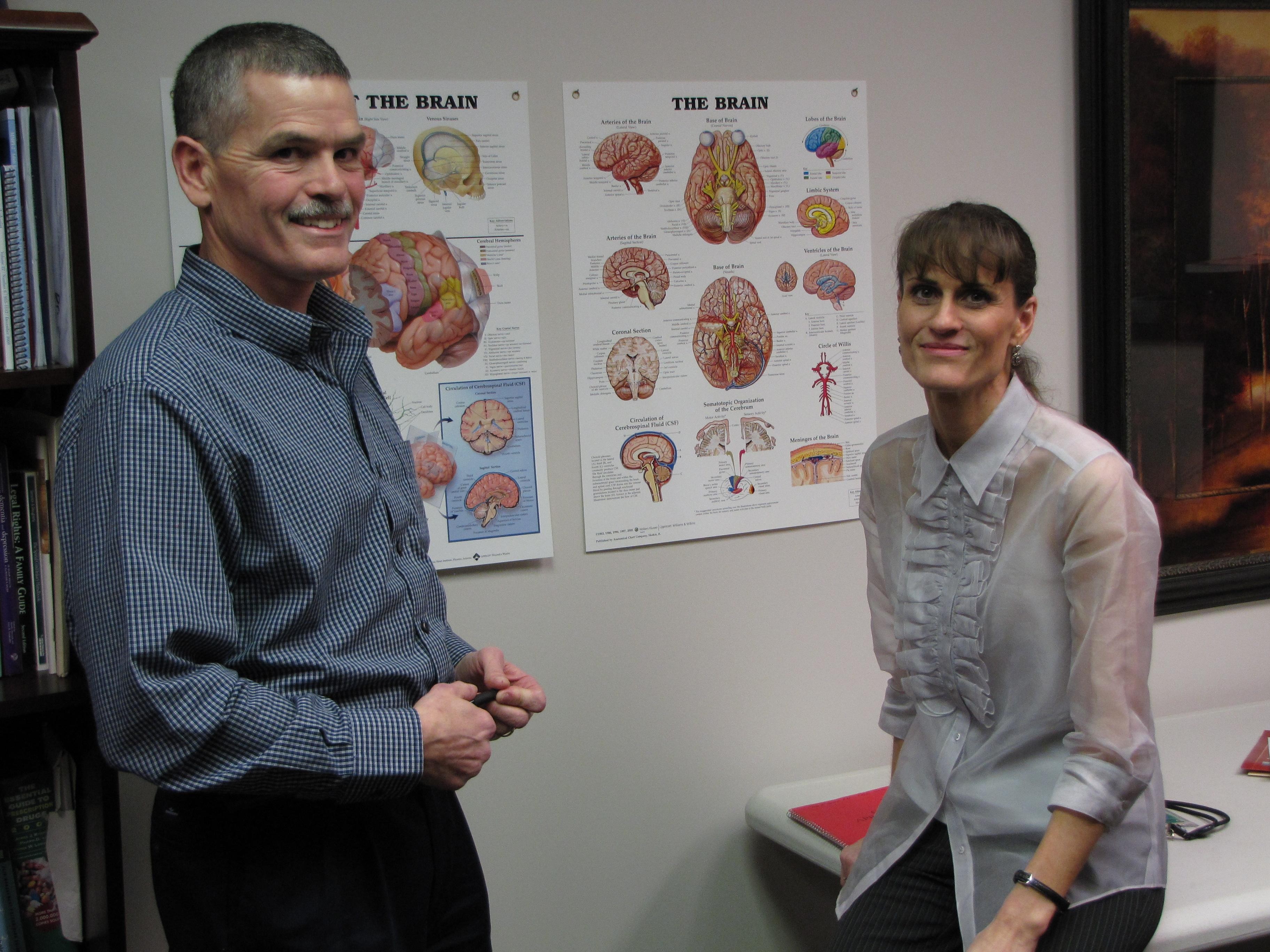A Soldier's scars from war are often hidden. They reveal themselves through memory loss, headaches, dizziness or blurred vision. The symptoms may appear months or years after his or her return home.
These hidden scars are diagnosed and treated in the newly formed Traumatic Brain Injury program at Fox Army Health Center. TBI Services director Dr. Lynley Ebeling and her case manager Tim Elmore have their office within the behavioral medicine clinic at Fox.
"Basically our mission is to have them functioning back at normal levels so they can go on and complete their mission as a Soldier," said Ebeling, a neuropsychologist and licensed clinical psychologist.
The Army Medical Command requires that TBI programs be reviewed as part of the command's organization inspection program. Fox's program, formed last August, was inspected March 11 by two representatives from the proponency office for rehabilitation and reintegration, Office of the Surgeon General. The representatives - Lt. Col. Lynn Lowe and Lt. Col. Kevin Galloway, both from Washington, D.C. - recommended approval.
"We passed with flying colors," Ebeling said. "And we're really proud of that because we achieved that in seven months."
Fox hired Ebeling and Elmore last summer from the local community. Ebeling, with 20 years experience in this field, had private practice in Huntsville the past six years. Before that, she spent 10 years as director of clinical services at the Center for Comprehensive Services, a residential post-acute rehabilitation facility for TBI in Carbondale, Ill. After moving to Huntsville, she commuted to that facility every month to serve there under contract.
"It's a real critical specialty," said Elmore, a registered nurse who worked at Huntsville Hospital for about eight years and was a medic in the Air Force. "And we're blessed to have her."
They've seen about 40 Soldiers at Redstone. They are predominantly male with an average age of 36; most are married and highly educated; and most are noncommissioned officers. Overwhelmingly, they had concussions from improvised explosive devices or rocket-propelled grenades. There have also been injuries from Humvee accidents, and two patients who had strokes. At least half of those diagnosed with concussions also meet the criteria for post-traumatic stress disorder.
Neuropsychology helps uncover hidden injuries from a concussion. With paper and pencil, neuropsychological testing checks the patient's concentration, motor skills and memory. "I really consider it a blueprint," Ebeling said.
March is National Brain Injury Awareness Month. Part of its purpose is to reduce the stigma about concussions. Not only are Soldiers susceptible to blast-related injuries, but families in the community commonly deal with the aftermath of bicycle accidents or sports.
"Multiple concussions are not good and can increase the possibility of a more severe brain injury," Ebeling said. "It's really important to wear helmets and use your seatbelts, because you need to take care of the brain."


Social Sharing